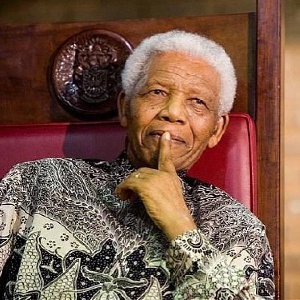Ghana, in collaboration with the South African High Commission, on Saturday held a memorial service in Accra to pay tribute to former South African President, Nelson Mandela.
The globally renowned anti-apartheid icon, who died on December 5 at the age of 95, was buried in his home village, Qunu, on Sunday.
He led the struggle against racial segregation perpetrated by the white minority on blacks in South Africa.
The memorial service was attended by former President Jerry John Rawlings and his wife Nana Konadu Agyemang-Rawlings, Madam Jeanette Thokozile Ndhlovu, South Africa’s High Commissioner to Ghana, Madam Hannah Tetteh, Minister of Foreign Affairs, Madam Samia Yaba Nkrumah, Chairman of the Convention People’s Party (CPP), and members of the diplomatic community.
It was interspaced with music, poetry recitals, speeches, Zulu cultural dance and the renditions of the Ghana National Anthem and the South Africa National Anthem.
Former President Rawlings eulogized Mandela for using his moral authority to speak against the West during their invasion of Iraq, which compelled the Allied Forces, led by the United States of America, to revive their actions.
He said Mandela stood against corruption, but today it seemed to be gaining grounds across Africa.
If South Africans were able to find Mandela in each other, then they would be a shining example not only in Africa, but in the whole world, the former President said.
Madam Tetteh, on behalf of the Government and people of Ghana, extended her deepest condolence to the Government and people of South Africa, and the bereaved family.
She said Mandela would be remembered for his life of service and dedication to humanity, alongside other great Pan Africanists such as Dr Kwame Nkrumah, Walter Sisulu and Martin Luther King Junior.
Madam Nkrumah said the idea Mandela stood for never died.
Mrs Pavelyn Tenclai Musaka, Zimbabwe’s High Commissioner to Ghana and Chairman of both the Diplomatic Community and the African Diplomatic Corps, said Mandela stood against colonialism and racial discrimination.
“Today we are celebrating one of the giants of Africa, but we cannot forget the man who started the whole thing; Dr Kwame Nkrumah”.
Archbishop Nicholas Duncan-Williams, Presiding Bishop of the Christian Action Faith Ministry International, said what made Mandela a global icon was the principles he believed in and his ability to forgive others.
He said Africa needed selfless and purposeful leaders like Mandela.
General News of Sunday, 15 December 2013
Source: GNA

















